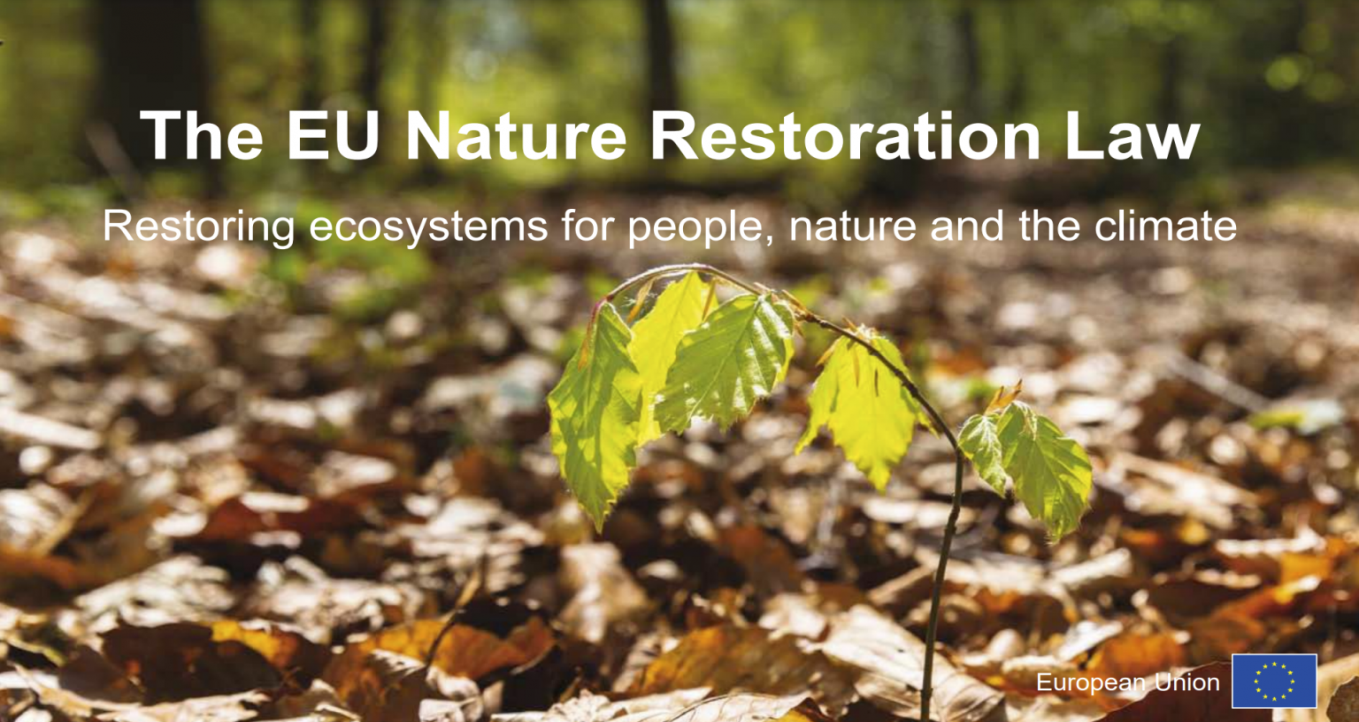





Copyright infringement not intended
Picture Courtesy: https://www.restoration-ecology.hu/l/the-nature-restoration-law-challenges-for-the-scientific-community/
Context: The European Parliament passed a new law aiming to restore degraded ecosystems across the European Union.
Details
Key provisions of the law
|
European Union (EU) |
|
|
Category |
Description |
|
Purpose and Goals |
A unique economic and political union promoting peace, democratic values, economic cooperation, and the well-being of citizens within its member states. |
|
History |
Formed post-World War II to foster economic cooperation and prevent future conflicts. Originally called the European Economic Community (EEC), it evolved into the EU with the Maastricht Treaty in 1993. |
|
Structure |
Operates through a system of supranational institutions and intergovernmental-negotiated decisions by member states. Key institutions include: ●European Parliament: Elected legislative body representing citizens. ●European Council: Heads of state or government of member states, setting overall direction. ●Council of the European Union: Main decision-making body along with the Parliament. ●European Commission: Executive body proposing legislation and managing EU policies. ●Court of Justice of the EU: Ensures EU law is interpreted and applied uniformly. |
|
Membership |
Currently 27 member states: Austria, Belgium, Bulgaria, Croatia, Cyprus, Czech Republic, Denmark, Estonia, Finland, France, Germany, Greece, Hungary, Ireland, Italy, Latvia, Lithuania, Luxembourg, Malta, Netherlands, Poland, Portugal, Romania, Slovakia, Slovenia, Spain, Sweden. |
|
Policies |
Covers a wide range of areas, including: ●Single Market: Free movement of goods, services, people, and capital. ●Common Agricultural Policy (CAP): Subsidies, and support programs for farmers. ●Eurozone: Countries using the euro as their currency. ●Environmental Protection: Climate change, energy, pollution control. ●Foreign Policy and Security: Common diplomatic and defence initiatives. ●Justice and Home Affairs: Collaboration on policing, immigration, and asylum. |
|
Achievements |
Long period of peace and stability in Europe. Creation of a large single market. Introduction of the euro. Free movement of citizens across borders. Strong environmental and consumer protection standards. |
Conclusion
|
PRACTICE QUESTION Q. The European Union (EU) has fostered peace and prosperity in Europe since its inception. However, critics argue that it infringes on national sovereignty, hinders economic growth, and struggles to address the diverse interests of its member states. To what extent do these criticisms hold weight, and how can the EU address these concerns while maintaining its core objectives? |









© 2025 iasgyan. All right reserved